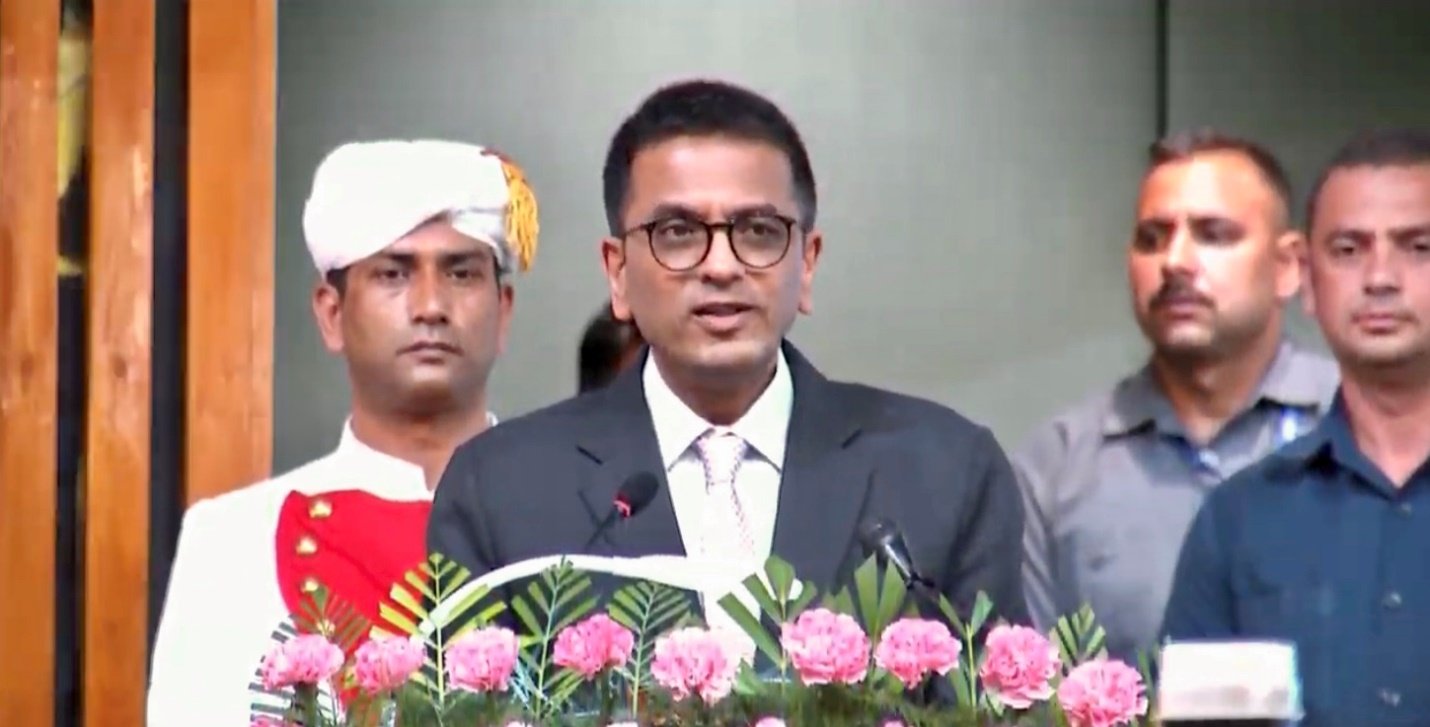Chief Justice of India (CJI) D Y Chandrachud on Friday said everyone in the legal fraternity, including judges, had a role in demystifying and simplifying the legal process for citizens to make it more accessible.
He was delivering the inaugural address of the 19th Legal Services Authority Meet at the Sher-i-Kashmir International Convention Centre (SKICC) here.
“Filing an FIR becomes daunting because of economic and social barriers. Citizens more often than not require assistance of specialised professionals, lawyers and paralegal workers, to secure access to justice,” he said.
The CJI said all of “us, not judges alone, have a role in demystifying and simplifying the legal process for the citizens to make more accessible to common citizens particularly to the marginalised communities”.
He recalled two cases in which oversight at preliminary stages of a case resulted in undue delay in administration of justice.
“Few years ago, a milkman was convicted of adulterating milk in 1980. The milkman hired a lawyer to represent him before the SC (Supreme Court). However, the milkman from Uttar Pradesh had actually never met the lawyer as he was sourced through word of mouth,” the CJI said.
He said lawyers normally travel on weekends and come back with a pile of ‘vakalat namas’ (power of attorney) and briefs.
“When the lawyer failed to appear repeatedly, another lawyer from the legal services committee was appointed amicus curiae. It was after 40 years that the SC acquitted the milkman of the charge of adulterating milk,” he said.
The CJI said this case shows the effectiveness of providing legal aid, especially in situations in which the litigants are unaware of the rights and entitlements.
Sharing details of another case, the Chief Justice of India said a few months ago, he heard a case in which nine charges under the Electricity Act were invoked against an accused.
“The accused pleaded guilty and he was sentenced to two years in each charge. The sessions judge forgot to mention that all sentences will run concurrently. He was sentenced to 18 years jail for electricity ‘chori’ (theft),” he said.
Three years later, he moved the high court against the sentence. The high court dismissed the petition under section 482 saying the conviction had attained finality, the CJI said.
“Eventually the case travelled to Supreme Court and we had to interfere. I am mentioning this not because we did something great but because there are numerous people who are unable to access their rights,” he added.


